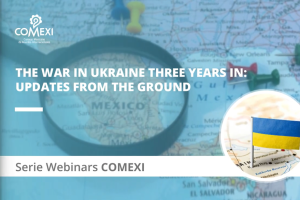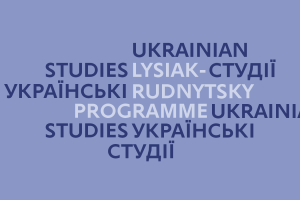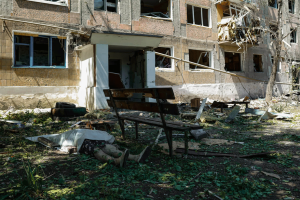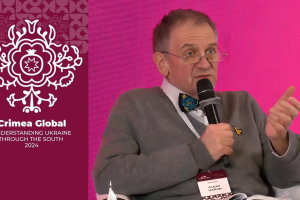Negotiations with Russia, triumphs in the Black Sea and the nuclear threat — what are Ukraine’s and Russia's goals for the coming months?
Experts and analysts discussed the diplomatic game Russians are playing around the "de-escalation" during the online event "Warfare developments and war diplomacy: what are the goals of Ukraine and Russia for the coming months?", organized by the Democratic Initiatives Foundation in partnership and with the financial support of Heinrich Böll Foundation (Kyiv, Ukraine).
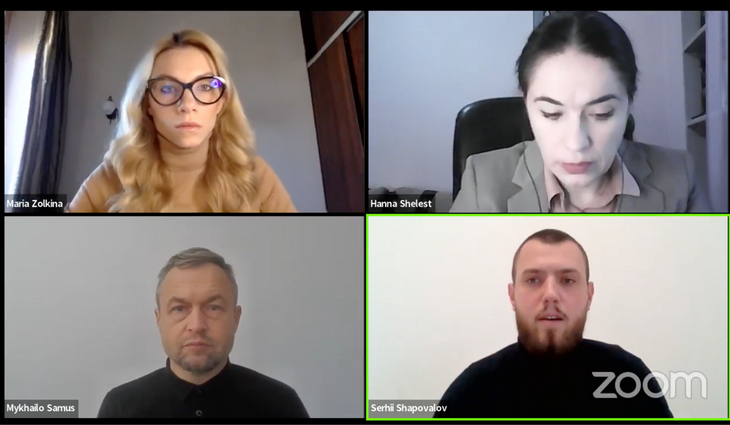
Serhii Shapovalov, a political analyst at the Democratic Initiatives Foundation and moderator of the meeting, pointed out the crucial importance of working with international audiences and holding discussions on the current situation:
«Russia is doing everything possible to spread Russian narratives in the information space and undermine international support for Ukraine».
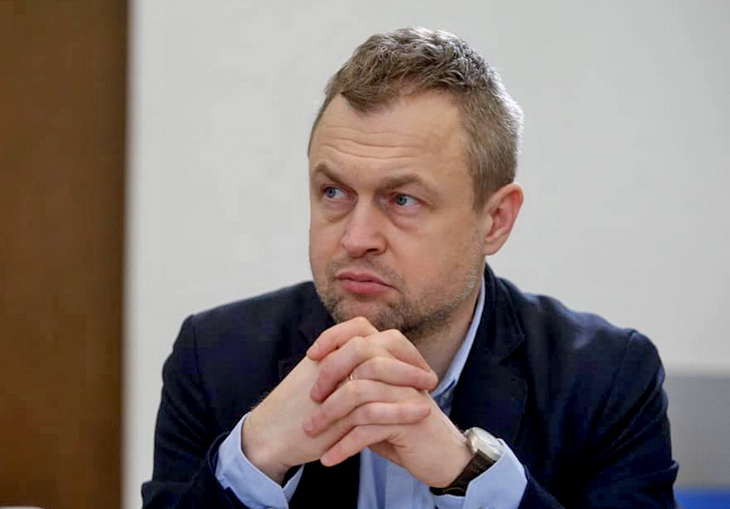
Mykhailo Samus, the Director of the New Geopolitics Research Network and an international relations expert, commented on the balance of forces on the battlefield and the potential negotiating positions of Ukraine and Russia:
«Russians are trying to create the conditions for negotiations with the help of terroristic and genocide-like methods like massive missile strikes on civilian infrastructure”.
According to Mykhailo Samus, Putin utilizes his normal practice of blackmailing, but the reaction he expected is lacking. The grain agreement and Erdogan’s response show that Russia is losing its influence even in the Black Sea region.
«Ukraine now is directly destroying Putin’s concept of continuing this war; the situation on the battlefield is developing absolutely against it”.
Expert states that through terroristic attacks on infrastructure, energy, and electricity, Russia is attempting to cause a collapse of the Ukrainian energy system and to press Ukrainian and Western leadership to negotiate with Russia before the winter. It may also be done to concentrate the mobilized troops and win the time required to organize the new deployments to Belarusian territory.
He also highlighted the possibility that more Iranian drones or ballistic missiles could be acquired to destroy more energy infrastructure sites in November-December. In that respect, the help of Western partners is crucial for Ukraine.
Furthermore, Mykhailo Samus reacted to the information threats regarding possible explosions at Ukrainian power plants, the use of nuclear weapons, and the so-called «dirty bomb», stating that our partners clearly understand the absolute craziness of the Russian disinformation campaigns. The best indicator of unwavering foreign support is the response by the Ministers of Defence from several countries.
As for the «dirty bomb», this narrative’s main purpose is to shift the focus of world media from Russian terrorist actions regarding attacks on energy infrastructure.
Another point of discussion concerned the grain deal and Russia’s Black Sea fleet.

Hanna Shelest, Security Studies Program Director at Ukrainian Prism, emphasized the importance of avoiding euphoria regarding Ukrainian successes in the Black Sea, as the Russian fleet continues to control a large portion of the area. She cautioned that even the damaged ships in conjunction with navy aviation could be used for naval artillery and reconnaissance purposes.
Hanna also commented on the successful operations against the Russian navy by the Ukrainian forces:
«Did we get the advantage? Unfortunately, no. We are still in the position that we are defending from the Russian ships that are a regular sight from just across the Odesa Harbour. They are still using both aviation and missiles stationed on the ships».
According to Hanna Shelest, the latest Sevastopol operation demonstrates Ukrainian potential to work with a new type of capabilities that are not yet so widespread in the world:
«Definitely, we had both significant strategical and psychological victories. But that is the victory of the battle, not the victory of the war».
Another question is whether we are to expect the return of Russian warships from Novorossiysk when the weather worsens.
To summarize, one can say that Russia’s Black Sea fleet has been reduced from a striking force to a controlling one. The main challenge for them now certainly lies in blocking Ukraine from accessing to sea and preventing others from providing assistance.
The threat of continuing missiles launches originating in the region still exists and poses a threat to Ukrainian cities:
«They are using anti-ship missiles against the cities. So, Onyx, that is usually should be used against other ships, Russians are using against Mykolaiv».
Another question encompasses the problem of Russian attacks on the «grain corridor» that was established earlier this year. Hanna Shelest highlights the lack of information available concerning the incident at the port of Ochakiv, adding that this exact port is not included in the grain deal (unlike Odesa, Chornomorsk, and Pivdenniy sea ports). So, as the expert says, from the Russian point of view, Ochakiv is absolutely a legitimate target, as it is not involved in the grain deal.

Mariia Zolkina, Head of Regional Security and Conflict Studies at the Democratic Initiatives Foundation, commented on the possible steps by the Russian Federation to force Ukraine into negotiations.
According to the expert, we are currently considering the two most likely Russian tactics.
The first would be to maintain the status quo while simultaneously trying to involve Ukraine in interim negotiations to create an illusion of negotiations on war settlement. Russia will do this only to gain time and gather enough forces:
«All these temporary negotiations efforts, to restart negotiations or to create the illusion that they might start, they are needed just for one short-term goal: to win time before Russia is able again in several months to launch another large-scale assault, including one from possibly Belarus territory».
The second possible scenario is to drag Ukraine into longer-term negotiations, like the ones of the Normandy format or the Minsk trilateral contact group.
Mariia Zolkina stated that it is not really a favorable scenario for Russia and, undoubtedly not a priority as they as of now consider the military occupation of Ukrainian territory a much more important task than diplomatic means. Though, there may be certain triggers that might drive Russia to long-term negotiations – another serious defeat of the Russian army or the prospects of a larger weapons supply to Ukraine by Western countries.
Moreover, Mariia pointed out certain problems with these aspirations:
«Whether Russia can succeed with these «tactics»? The problem here for Russia is that there is no chance that Ukrainian authorities, both political elites, and military staff, will agree to negotiations at this very stage».
According to Mariia Zolkina, the primary risk for Ukraine concerning the second scenario coming to fruition is that this idea may find fertile ground abroad. To prevent this, Ukraine has to prepare to tackle this idea in its infancy.
Report:
Anastasiia Polishchuk, Democratic Initiatives Foundation





